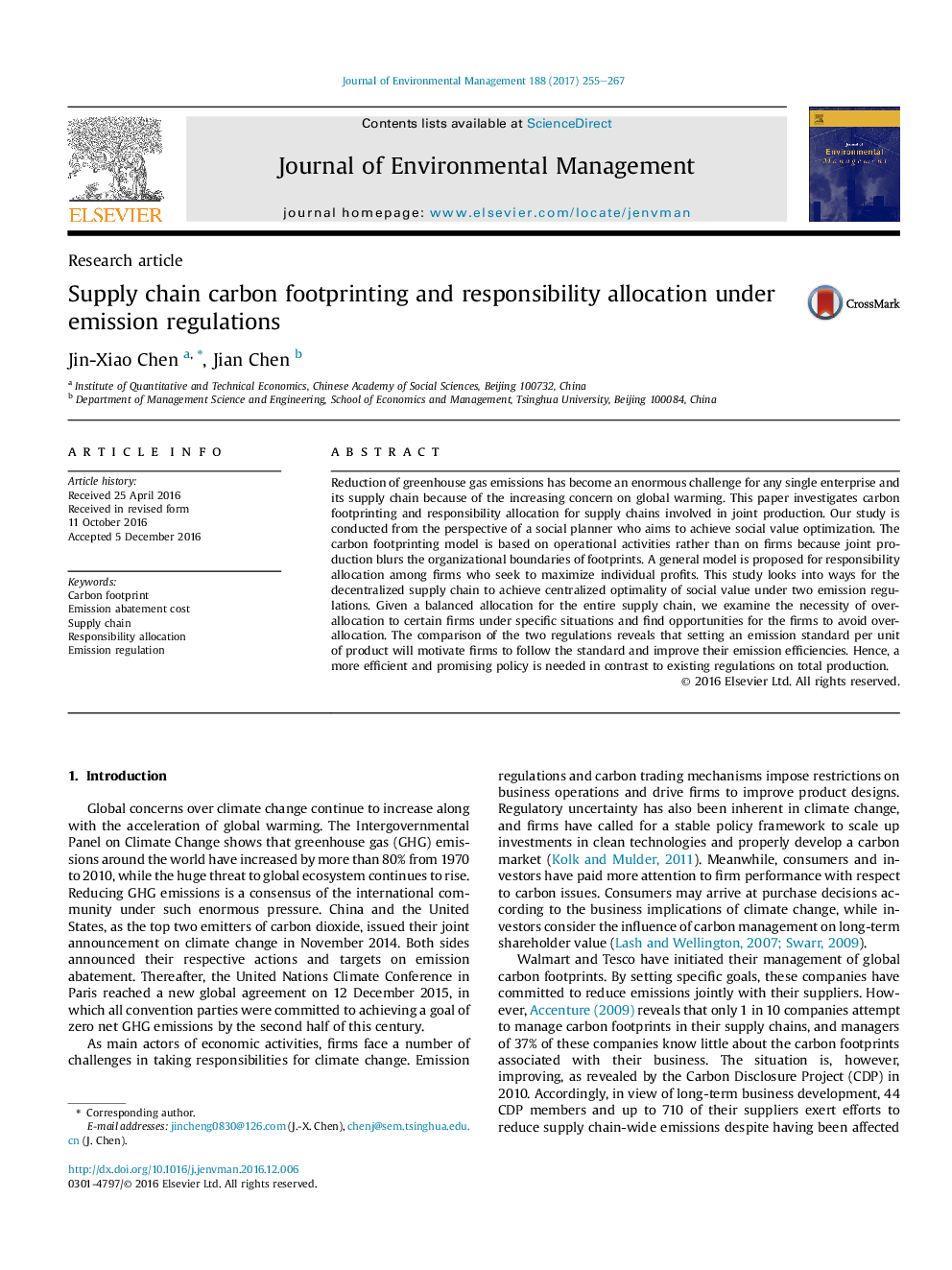| Article ID | Journal | Published Year | Pages | File Type |
|---|---|---|---|---|
| 5117143 | Journal of Environmental Management | 2017 | 13 Pages |
Abstract
Reduction of greenhouse gas emissions has become an enormous challenge for any single enterprise and its supply chain because of the increasing concern on global warming. This paper investigates carbon footprinting and responsibility allocation for supply chains involved in joint production. Our study is conducted from the perspective of a social planner who aims to achieve social value optimization. The carbon footprinting model is based on operational activities rather than on firms because joint production blurs the organizational boundaries of footprints. A general model is proposed for responsibility allocation among firms who seek to maximize individual profits. This study looks into ways for the decentralized supply chain to achieve centralized optimality of social value under two emission regulations. Given a balanced allocation for the entire supply chain, we examine the necessity of over-allocation to certain firms under specific situations and find opportunities for the firms to avoid over-allocation. The comparison of the two regulations reveals that setting an emission standard per unit of product will motivate firms to follow the standard and improve their emission efficiencies. Hence, a more efficient and promising policy is needed in contrast to existing regulations on total production.
Keywords
Related Topics
Physical Sciences and Engineering
Energy
Renewable Energy, Sustainability and the Environment
Authors
Jin-Xiao Chen, Jian Chen,
